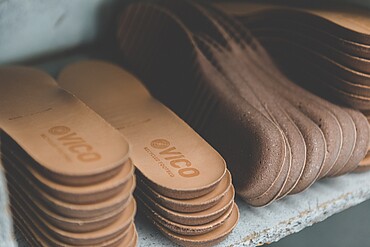Abstract
Kevin van Wijk had always been a 'sneaker freaker'. As a result of his love and passion for footwear, in 2010 he founded VICO Movement: an independent product-driven footwear brand, valuing European quality, distinctive design, craftsmanship and sustainability. After a promising start in the B2B-market, in 2015, the company fell into severe distress after an internal conflict. After the co-founders parted ways, the company continued its operations under the guidance of Van Wijk, however the footwear manufacturer now faced a new dilemma. Recent numbers had shown that the complex B2B-market stagnated, while at the same time the B2C-market demonstrated promising opportunities. Hence, Van Wijk had to make an important decision in order to revive the company. Should VICO continue its business in the familiar B2B-market? Or should the company make a U-turn, changing course 180 degrees, and enter into the unfamiliar B2C-market?
Citation Note
Based on field research; 11 pages.
Follow the 'handle' link to access the Case Study on RePub.
For EUR staff members: the Teaching Note is available on request, you can contact us at rsm.nl/cdc/contact/
For external users: follow the link to purchase the Case Study and the Teaching Note.
usage
1. Assess how managerial practices differ from theory. In particular, if and to which extent personal conflicts and wealth vs control motivations affect the decision-making process. 2. Identify the feasibility of adapting a business model in an environment of uncertainty and limited financial resources. 3. Understanding the implications of solo vs. team founding. 4. Evaluating the notion of wealth versus control orientation in funding decisions. 5. Exploring the ramifications of business model renovations.
